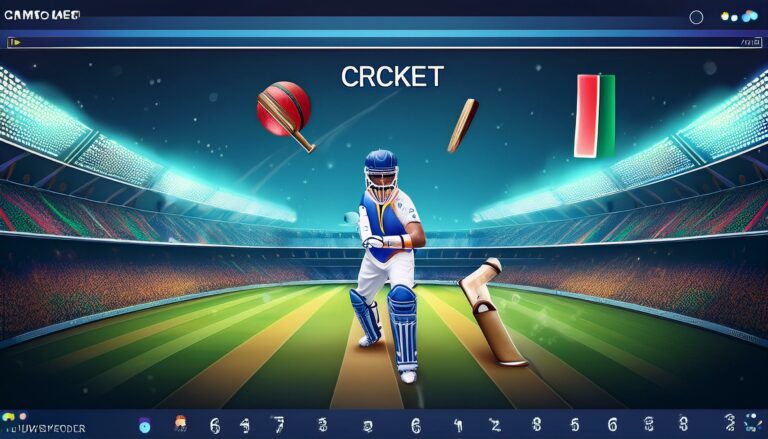The Importance of Cricket Coaching Techniques and Innovations
Online Cricket ID, Online Cricket ID: Modern training methods have revolutionized the way athletes prepare for their sports. By incorporating cutting-edge technology, dynamic drills, and tailored fitness routines, athletes can enhance their strength, speed, and agility like never before. These methods not only push the limits of physical performance but also aid in minimizing the risk of injury, leading to better long-term outcomes for athletes.
Furthermore, modern training methods foster a growth mindset among athletes by encouraging them to constantly challenge their abilities and strive for improvement. The use of data analytics in training allows for personalized feedback and performance tracking, enabling athletes to identify areas of weakness and focus on targeted skill development. Overall, the benefits of implementing modern training methods are clear: improved performance, reduced injury rates, and a competitive edge in the ever-evolving world of sports.
Enhancing Player Performance Through Strategic Coaching
Player performance in cricket is greatly influenced by the strategic coaching they receive. Coaches play a crucial role in analyzing players’ strengths and weaknesses, devising tailored training plans, and providing constructive feedback to enhance their skills. Through strategic coaching, players can work on refining their techniques, improving decision-making abilities, and developing a deep understanding of the game.
Effective strategic coaching involves creating a positive and motivating environment that encourages players to strive for continuous improvement. Coaches need to be observant, approachable, and knowledgeable in order to guide players towards reaching their full potential. By setting clear goals, offering regular guidance, and instilling a sense of discipline, strategic coaching can lead to significant improvements in player performance on the cricket field.
Utilizing Technology for Improved Skill Development
Technological advancements have revolutionized the way skills are developed in cricket training. From video analysis software to wearable technology, coaches now have a plethora of tools at their disposal to enhance players’ performance. By utilizing these technologies, coaches can provide real-time feedback, pinpoint areas of improvement, and tailor training sessions to address specific skill deficiencies.
One of the key advantages of incorporating technology in skill development is the ability to track progress over time. By analyzing data collected during training sessions, coaches can identify patterns, trends, and areas where players are excelling or struggling. This data-driven approach allows for a more targeted and personalized coaching strategy, ultimately leading to enhanced skill development and performance on the field.
Adapting Coaching Techniques to Suit Individual Players
Coaching in cricket is a nuanced art that requires a tailored approach for each player. By understanding the strengths and weaknesses of individual players, coaches can adapt their techniques to suit the specific needs of each athlete. This personalized coaching style helps players reach their full potential and fosters a more effective learning environment.
When coaching techniques are customized for individual players, it allows for a deeper level of skill development and improvement. By providing targeted guidance and feedback based on a player’s unique abilities and learning style, coaches can help players hone their skills and overcome any challenges they may face. This individualized approach not only enhances player performance on the field but also builds strong relationships between coaches and players, leading to a more collaborative and successful team dynamic.
Exploring the Impact of Mental Conditioning on Cricket Training
Cricket training goes beyond just physical skills; mental conditioning plays a crucial role in enhancing player performance. A cricketer’s mindset can greatly impact their ability to focus, make quick decisions, and stay composed under pressure on the field. By incorporating mental conditioning techniques such as visualization, mindfulness, and positive self-talk, players can develop mental resilience and optimize their performance during high-stakes moments in the game.
Moreover, mental conditioning also contributes to improving overall team dynamics and communication. When players have a strong mental mindset, they are better equipped to support their teammates, handle challenges, and work towards common goals effectively. Coaches who prioritize mental conditioning in their training programs not only help players perform better individually but also foster a culture of resilience, collaboration, and unity within the team.
Incorporating Data Analysis in Coaching Strategies
Data analysis has become an integral part of modern coaching strategies in cricket. By leveraging statistical information and performance data, coaches can gain valuable insights into player strengths and areas for improvement. This data-driven approach allows for more targeted and personalized training programs that can help players reach their full potential on the field.
Furthermore, data analysis can uncover patterns and trends that may not be apparent through traditional coaching methods alone. Coaches can use this information to make informed decisions on game tactics, player selection, and overall team strategy. By harnessing the power of data analysis, cricket coaches can enhance their coaching effectiveness and ultimately improve player performance on the field.
Staying Ahead of the Game with Innovative Coaching Approaches
In the rapidly evolving world of sports coaching, staying ahead of the game requires constant innovation and adaptation. Coaches are tasked with not only honing traditional techniques but also embracing new methods to push the boundaries of player performance. By incorporating cutting-edge technologies, such as virtual reality training simulations and performance tracking systems, coaches can provide players with personalized feedback and tailored development programs, ultimately enhancing their overall skills and competitive edge.
Moreover, fostering a culture of continual learning and experimentation within coaching staff can lead to the discovery of novel strategies and approaches. Encouraging collaboration and peer-to-peer knowledge sharing can spark creativity and inspire coaches to think outside the box. By staying abreast of the latest trends in sports science and performance analytics, coaches can refine their methodologies and unlock new avenues for success on the field.
Fostering Team Cohesion and Communication through Coaching
Effective coaching plays a crucial role in fostering team cohesion and improving communication among players. By providing guidance and support, coaches can create a positive and collaborative team environment where individuals feel valued and motivated to work towards a common goal. Clear communication channels established by the coach help in enhancing understanding among team members, leading to smoother coordination on the field.
Encouraging open dialogue and feedback within the team enables players to express their thoughts and ideas freely, creating a culture of mutual respect and trust. Coaches can facilitate team discussions and activities that promote teamwork and collaboration, thereby strengthening bonds among players. Through effective communication strategies and team-building exercises, coaches can establish a cohesive and harmonious team dynamic that enhances performance and fosters a sense of unity among players.
Maximizing Potential with Specialized Training Programs
Specialized training programs are designed to cater to the unique needs and goals of individual players. By focusing on specific skills, techniques, and physical conditioning, these programs can help athletes reach their full potential. Whether it is improving batting techniques, enhancing bowling speed, or increasing overall fitness levels, specialized training programs can address areas of weakness and provide targeted solutions for improvement.
Moreover, these programs offer a personalized approach to training, allowing coaches to tailor strategies and exercises according to each player’s strengths and areas needing development. This individualized attention can lead to more efficient progress and better results on the field. By investing time and resources into specialized training programs, players can hone their skills, build confidence, and ultimately maximize their potential in the sport of cricket.
Achieving Success through Continual Learning and Adaptation
To stay competitive in the ever-evolving landscape of sports, coaches must embrace a mindset of continual learning and adaptation. This means being open to new ideas, techniques, and technologies that can enhance training methods and player performance. By acknowledging that there is always room for improvement and innovation, coaches can create a dynamic and forward-thinking coaching environment that pushes both themselves and their players to reach new heights.
Adaptation is essential in the world of sports as strategies and tactics are constantly changing. Coaches who are willing to adapt to the evolving demands of the game are better equipped to guide their players towards success. This flexibility allows coaches to tailor their training methods to suit the unique needs and abilities of individual players, maximizing their potential and fostering a culture of growth and development within the team.







